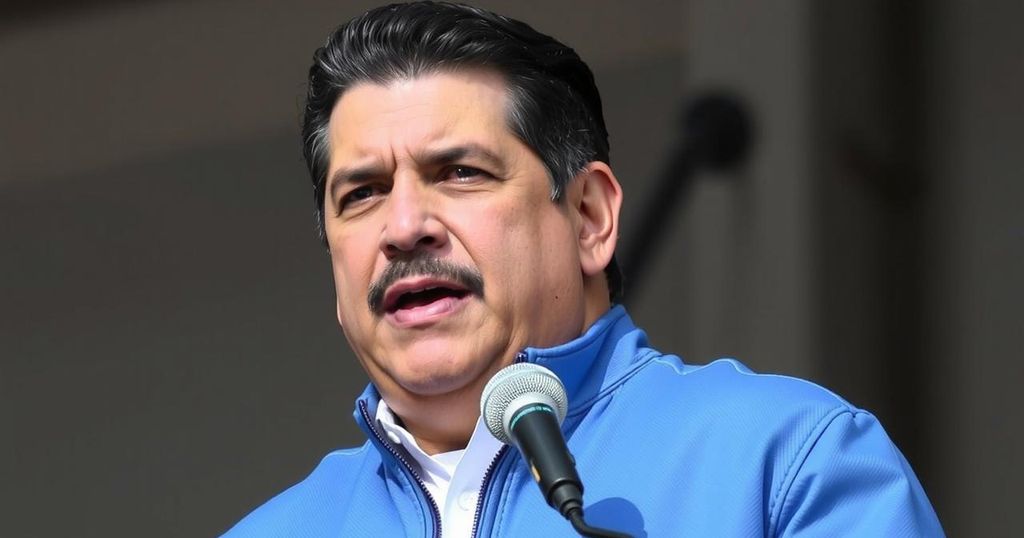Maduro’s Inauguration Amidst Accusations of Electoral Fraud and Protest

Nicolás Maduro is to be sworn in for another term as president of Venezuela amidst allegations of election fraud and significant opposition protests. María Corina Machado was reportedly detained while advocating for Edmundo González, who opponents claim won the election. The situation remains tense with widespread arrests and international condemnation of Maduro’s regime.
On Friday, Venezuelan President Nicolás Maduro is set to be sworn in for a new term, extending his increasingly authoritarian rule until 2031. This ceremony occurs amidst significant allegations of electoral fraud and a suppression of dissent, as many believe that his opponent, Edmundo González, legitimately won the recent election. Hundreds of protesters have rallied in Caracas against Maduro’s inauguration, with notable opposition leader María Corina Machado facing detention from government security forces while attempting to support González’s claim to the presidency.
The government’s announcement of Maduro’s victory came shortly after the July 28 election, yet they failed to provide detailed vote counts, prompting serious doubt regarding the integrity of the electoral process. Opposition members have released tallies showing González received nearly twice as many votes as Maduro. This has led to widespread protests and international condemnation, with over 2,000 demonstrators arrested and multiple instances of violent repression recorded within the country.
As Maduro prepares for the inauguration, the presence of international leaders remains uncertain, especially following the contrasting decisions of some allies to avoid the event due to the ongoing crisis. Notably, President Gustavo Petro of Colombia has chosen to skip the event, reflecting the political isolation that Maduro faces on the global stage. Furthermore, the safety of González, currently in exile, remains precarious as Maduro’s government has threatened to arrest him upon his return.
The turbulent political landscape in Venezuela has significantly impacted its governance since Nicolás Maduro’s presidency began. Following the controversial elections and apparent suppression of opposition voices, Maduro’s regime has faced accusations of authoritarianism and election-related fraud. Despite these challenges, Maduro aims to secure another term in office, demonstrating resilience against domestic and international pressure. The growing dissent among Venezuelans, combined with the government’s oppressive tactics, highlights the fragile state of democracy in the nation. The resistance led by figures like María Corina Machado illustrates the ongoing struggle for legitimate political representation and civil liberties in Venezuela.
The impending inauguration of Nicolás Maduro raises critical concerns regarding the legitimacy of democratic processes in Venezuela. With evidence suggesting that his opponent, Edmundo González, may have won the recent election, and ongoing unrest among citizens, the situation remains highly volatile. International scrutiny and the response from both domestic opposition and allies will be pivotal in shaping Venezuela’s future political climate. Ultimately, the nation’s stability hangs in the balance as Maduro’s government continues to confront overwhelming dissent.
Original Source: abcnews.go.com








